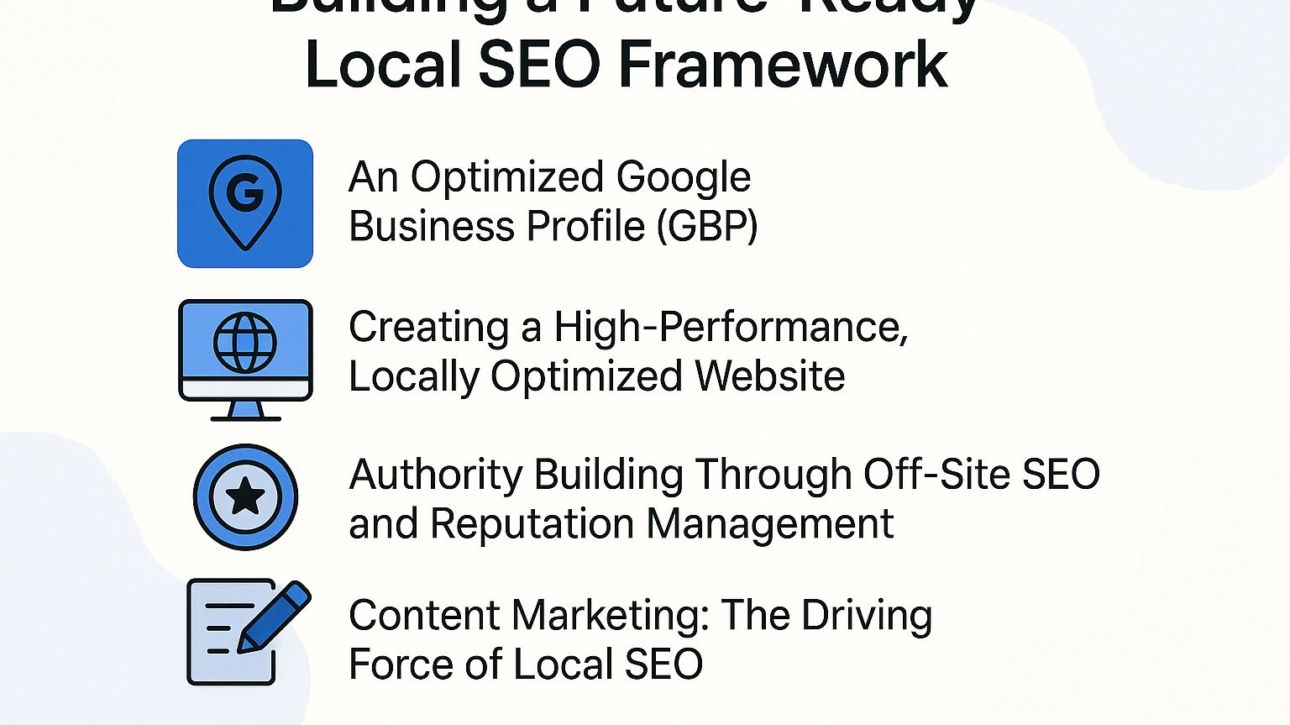In an age where technology reshapes how we search and connect, mastering Local SEO has become vital, especially for businesses in the travel sector. The integration of AI tools enhances local visibility, enabling operators to engage travelers effectively.
Contents
Short Summary:
- Importance of Local SEO for travel businesses in an AI-dominated landscape.
- Strategies to optimize Google Business Profiles (GBP) and websites.
- Emerging AI-driven trends shaping the future of SEO and customer engagement.
The travel and tourism industry exists at the intersection of exploration and digital connectivity. With the rising influence of social media and personal referrals, search engines remain the primary guiding lights for many travelers, especially when embarking on new adventures. For businesses, ranging from boutique accommodations to local tour operators, establishing a robust online presence isn’t merely advantageous; it’s essential for survival and continued growth.
Local SEO has emerged as a decisive tool, bridging the gap between eager travelers and experienced providers ready to meet their desires. As the online search landscape becomes increasingly populated by AI-generated results, businesses in the travel sector must adopt advanced Local SEO strategies tailored for today’s dynamic environment.
Why Local SEO Matters in the Travel Industry
Today’s tech-savvy travelers venture online even before packing their bags, seeking authentic, localized experiences. According to a BrightLocal report, a significant 87% of consumers utilized Google to evaluate local businesses in 2022, a trend that’s particularly pronounced within the travel industry.
Implementing a strong Local SEO strategy ensures visibility when potential customers are searching for services specific to their desired locations. Here are pivotal reasons why Local SEO is indispensable:
- Hyper-Targeted Visibility: Local SEO directs your business towards audiences searching for tailored queries like “boutique lodgings in downtown Austin” or “sustainable tours nearby,” capturing users with explicit local intent.
- Increased Organic Traffic: Enhanced visibility in local searches leads to an upsurge in qualified site traffic, reducing reliance on commission-heavy platforms like OTAs (Online Travel Agencies).
- Credibility and Trust: Businesses appearing in prime local search positions, particularly those with positive reviews, gain perceived reliability. A study by Expedia demonstrates that 95% of travelers consult reviews prior to making bookings.
- Competitive Edge: A well-crafted Local SEO strategy distinguishes your local offerings, differentiating you from larger, less localized competitors.
- Cost-Effectiveness: Organic Local SEO strategies often provide a higher long-term ROI compared to paid advertising, yielding sustainable visibility over time.
Building a Future-Ready Local SEO Framework
Maximizing visibility while appealing to today’s discerning travelers requires constructing an SEO strategy grounded in several foundational elements:
An Optimized Google Business Profile (GBP)
For any business that serves a physical location (or offers services to broader areas), maintaining an updated Google Business Profile is critical. This profile often becomes the first point of contact a potential customer has with your brand, as Google Maps features prominently in local search results.
Here are essential GBP best practices for leveraging this powerful tool:
- NAV (Name, Address, Phone) Optimization: Make sure your GBP listing is claimed and thoroughly completed, ensuring accuracy across all elements, including hours of operation and a keyword-rich description.
- Correct Categorization: Choose the most accurate primary and secondary categories reflecting the services you provide.
- Define Service Areas: Accurately identify your service areas, particularly if your business doesn’t have a fixed location.
- Engage through GBP Posts: Consistently share updates, offers, and local insights via GBP Posts to demonstrate your active presence.
- Review Management: Proactively seek and respond to reviews. Engaging with customer feedback on GBP impacts both ranking and customer perception.
Creating a High-Performance, Locally Optimized Website
Your website serves as your digital headquarters—where inspiration meets the transaction. Essential components for a locally optimized web presence include:
- Strategic Keyword Research: Identify phrases your target audience uses at various travel planning stages, especially during the engagement and booking phases.
- On-Page Optimization: Customize Title tags, headings, and links on key pages for local relevance. Track key performance metrics to refine focus continually.
- Dedicated Location Pages: If you operate across several locations, develop unique landing pages enriched with localized content, team information, and testimonials.
- Image & Video Optimization: Ensure all visual content is optimized for speed and relevance, applying descriptive filenames and alt text.
- Mobile Responsiveness: Given that nearly 70.5% of travel searches occur on mobile, a fast, responsive design is critical.
- Structured Data Implementation: Utilize schema markup to help search engines understand your content contextually, enhancing visibility in rich snippets.
Authority Building Through Off-Site SEO and Reputation Management
Off-page signals gleaned from local and industry-specific sources can considerably influence local ranking. Consistent NAP (Name, Address, Phone number) details across directories, strategic backlinking, and local partnerships fortify your web presence. Here are key strategies:
- NAP Consistency: Ensure uniformity across all online listings.
- Strategic Link Building: Garner quality backlinks from trusted local sources and tourism boards.
- Collaborate with Local Influencers: Leverage local influencers to amplify brand visibility.
Content Marketing: The Driving Force of Local SEO
Content remains a pivotal component of effective Local SEO, especially in the AI-infused landscape. Key focuses should include:
- Create Audience-Centric Content: Understand your target traveler’s aspirations and curate content that motivates, informs, or assists in the booking process.
- Hyperlocal Storytelling: Share unique content that underscores your local expertise, such as guides and itineraries.
- Directly Respond to Common Queries: Implement content that specifically addresses traveler inquiries, utilizing Question and Answer schema to improve search eligibility.
Embracing AI Overviews and New Search Paradigms
It’s impossible to discuss SEO today without acknowledging the profound impact of AI on search behavior. Google’s AI Overviews, along with tools like ChatGPT, have changed the way users interact with search engines.
A recent survey from Whitespark indicated that AI Overviews display results for about 68% of local business-type searches. To optimize for this evolving landscape, consider the following:
- Prioritize Quality Content: Ensure your content epitomizes Experience, Expertise, Authoritativeness, and Trustworthiness (E-E-A-T).
- Comprehensive Structuring: Present information understandably. Clear headings and bullet points help AI interpret your content easily.
- Optimize for Conversational Queries: Craft content to meet how users typically phrase their questions.
- Entity Recognition: Be consistent in your business’s representation online, enhancing your visibility.
- Monitor AI Search Presence: Leverage new tools to track how your business appears in AI-generated responses.
Analytics and Continuous Optimization
Effectiveness in Local SEO rests on data. Utilize tools like Google Analytics and Google Search Console to monitor vital metrics, informing continuous adjustments to your strategy. Metrics to keep an eye on include:
- Organic traffic trends
- Keyword rankings
- Google Business Profile insights
- Conversion rates from various campaigns
Adapting to an AI-Enhanced Future in Local SEO
Local SEO is not merely an auxiliary marketing technique; it’s a fundamental aspect of any digital strategy for travel businesses. By delivering authentic local experiences and rigorously optimizing your online footprint, you’ll be well-positioned to capture more attention in the ever-competitive digital space.
As the landscape of AI reshapes search behavior, prioritizing high-quality, well-structured content paired with a strong local presence will elevate your brand above the competition. Stay agile, embrace innovation, and prepare to welcome a diverse array of visitors at your physical and virtual doorsteps.
In the spirit of innovation, remember that tools like Autoblogging.ai can assist you in generating SEO-optimized content, streamlining your workflow, and driving your local SEO strategy forward successfully.
Do you need SEO Optimized AI Articles?
Autoblogging.ai is built by SEOs, for SEOs!
Get 30 article credits!



